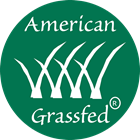By MATEUSZ PERKOWSKI
Capital Press
The USDA has not imposed any penalties on retailers who have failed to comply with country-of-origin labeling requirements, according to an agency audit. The agency’s Agricultural Marketing Service, which oversees the COOL program, has also developed backlogs in notifying retailers that they’re out of compliance with the law, the audit said. In roughly 30 percent of non-compliance cases identified by USDA last year, the agency notified retailers of the problem more than two months after the review, the audit said.
Auditors from the USDA’s Office of Inspector General found that “AMS officials did not identify and investigate repeat violators of the COOL requirements or assess monetary penalties where appropriate.” In several cases, the USDA should have further investigated whether the violations were willful but did not do so during follow-up reviews, the audit said.
The audit also said the agency needs to improve its procedures for conducting reviews and better communicate with retailers, among other findings. In a response letter, an official from AMS said the audit had begun less than a year after COOL had become effective in March 2009 — a time when the agency was still focusing on outreach to the food industry. The agency is now taking steps to beef up its enforcement of the statute and expects to fully comply with the audit’s recommendations, the letter said.
The Ranchers-Cattlemen Action Legal Fund, United Stockgrowers of America — a major proponent of COOL — is troubled by the audit’s findings. “It confirms our concern that USDA has not taken its responsibility seriously,” said Bill Bullard, R-CALF’s CEO. After 2 1/2 years, the lack of enforcement actions by USDA sends a signal to the industry that the agency isn’t intent on strict implementation, he said.
Bullard said he’s also afraid the USDA’s enforcement of the program will undermine consumer confidence in country-of-origin labeling. “It really reduces the value of the COOL label itself,” he said. R-CALF opposes the industry practice of labeling beef as a product of multiple countries — such as U.S., Canada and Mexico — on a single label, since this confuses consumers, he said.
When the program first went into effect, USDA Secretary Tom Vilsack sent a letter to industry representatives asking for more transparency in labeling. Vilsack recommended labels that labels be more specific, for example: “Born and Raised in Country X and Slaughtered in Country Y,” the letter said. So far, however, the agency has not stood up to retailers and meat packers who opposed COOL, Bullard said. “It exemplifies there really have been no changes in USDA despite the rhetoric espoused by this administration in 2009.”
The USDA has not been signaling that COOL is unimportant, but the program likely is a lower priority than food safety, said Jeremy Russell, communications director for the National Meat Association, which represents packers. “It’s more of a nice-to-know program for consumers,” he said. “It doesn’t add any value for producers, including those in R-CALF.”
For packers, the primary effect of the COOL program has been to increase operational complications by requiring them to segregate livestock from different countries, Russell said. It’s possible that retailers make labeling mistakes based on information supplied by packers, but such errors would be unintentional, he said. “I think, by and large, there’s been large-scale compliance,” said Russell. “Nobody is motivated not to comply.”
